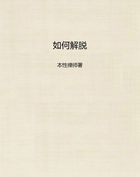1.The contents of the whole digression we are examining,were distributed,we may remember,at the outset of this Essay,into five divisions.The first,relative to the manner in which Government in general was formed,has already been examined in the preceding chapter.The next,relative to the different species or forms it may assume,comes now to be considered.
2.The first object that strikes us in this division of our subject is the theological flourish it sets out with.In God may be said,though in a peculiar sense,to be our Author's strength.In theology he has found a not unfrequent source,of ornament to divert us,of authority to overawe us,from sounding into the shallowness of his doctrines.(56)3.That governors,of some sort or other,we must have,is what he has been shewing in the manner we have seen in the last chapter.Now for endowments to qualify them for the exercise of their function.These endowments then,as if it were to make them shew the brighter,and to keep them,as much as possible,from being soiled by the rough hands of impertinent speculators,he has chosen should be of aethereal texture,and has fetched them from the clouds.
`All mankind',(57)he says,`will agree that government should be reposed in such persons in whom those qualities are most likely to be found,the perfection of which are among the attributes of Him who is emphatically styled the Supreme Being:the three great requisites,I mean,of wisdom,of goodness,and of power.'
But let us see the whole passage as it stands 4.`But as all the members of Society',(meaning natural Society)`are naturally EQUAL,'(i.e.,I suppose,with respect to political power,of which none of them as yet have any)`it may be asked,'(continues he)in whose hands are the reins of government to be intrusted?To this the general answer is easy;but the application of it to particular cases,has occasioned one half of those mischiefs which are apt to proceed from misguided political zeal.In general,all mankind will agree that government should be reposed in such persons in whom those qualities are most likely to be found,the perfection of which are among the attributes of Him who is emphatically styled the Supreme Being;the three grand requisites,I mean,of wisdom,goodness,and of power:wisdom,to discern the real interest of the community;goodness,to endeavour always to pursue that real interest;and strength or power,to carry this knowledge and intention into action.These are the natural foundations of sovereignty,and these are the requisites that ought to be found in every well-constituted frame of government.
5.Every thing in its place.Theology in a sermon,or a catechism.But in this place,the flourish we have seen,might,for every purpose of instruction,have much better,it should seem,been spared.What purpose the idea of that tremendous and incomprehensible Being thus unnecessarily introduced can answer,I cannot see,unless it were to bewilder and entrance the reader;as it seems to have bewildered and entranced the writer.Beginning thus,is beginning at the wrong end:it is explaining ignotum per ignotius .
It is not from the attributes of the Deity,that an idea is to be had of any qualities in men:on the contrary,it is from what we see of the qualities of men,that we obtain the feeble idea we can frame to ourselves,of the attributes of the Deity.
6.We shall soon see whether it be light or darkness our Author has brought back from this excursion to the clouds.The qualifications he has pitched upon for those in whose hands Government is to be reposed we see are three:wisdom,goodness,and power.Now of these three,one there is which,I doubt,will give him some trouble to know what to do with.I mean that of Power which,looking upon it as a jewel,it should seem,that would give a lustre to the royal diadem,he was for importing from the celestial regions.In heaven,indeed,we shall not dispute its being to be found;and that at all junctures alike.But the parallel,I doubt,already fails.
In the earthly governors in question,or,to speak more properly,candidates for government,by the very supposition there can not,at the juncture he supposes,be any such thing.Power is that very quality which,in consideration of these other qualities,which,it is supposed,are possessed by them already,they are now waiting to receive.
7.By Power in this place,I,for my part,mean political power:the only sort of power our Author could mean:the only sort of power that is here in question.A little farther on we shall find him speaking of this endowment as being possessed,and that in the highest degree,by a King,a single person.Natural power therefore,mere organical power,the faculty of giving the hardest blows,can never,it is plain,be that which he meant to number among the attributes of this godlike personage.
8.We see then the dilemma our Author's theology has brought him into,by putting him upon reckoning power among the qualifications of his candidates.
Power is either natural or political.Political power is what they cannot have by the supposition:for that is the very thing that is to be created,and which by the establishment of Government,men are going to confer on them.If any,then,it must be natural power;the natural strength that a man possesses of himself without the help of Government.But of this,then,if this be it,there is more,if we may believe our Author,in a single member of a society,than in that member and all the rest of the society put together.(58)9.This difficulty,if possible,one should be glad to see cleared up.















